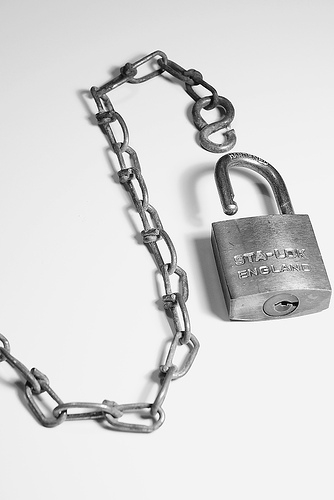Writing a Theory of Liberation
March 24, 2010 7 Comments
|Photo by Dazzie D|http://www.flickr.com/photos/dazzied/427180864/|
At the 2008 White Privilege Conference, I went to a workshop on Critical Liberation Theory, led by Barbara Love, Keri DeJong, Christopher Hughbanks, Joanna Kent Katz and Teeomm Williams.? I was re-reading the piece they gave out at that workshop, talking about the ways that we can each take daily actions toward liberation.? This, they suggested, requires first clearly articulating our own theory of liberation, through which we can then build a praxis of liberation – daily work that brings us in the direction of liberation itself.? They talked of the need to know fully where you’re coming from (understanding oppression), but to look forward toward liberation. Otherwise, they described it as if one were leaving on a car trip from Massachusetts to drive to California while looking out the back window instead of looking at the road ahead.
Rereading this, I tried to think about how to actually articulate a theory of liberation.? What would be in it?? And I began to see that while I know what I don’t want, the vision of liberation is a little more challenging for me.? This, I’m sure, is the legacy of internalized oppression, internalized supremacy and white privilege.? The system has put limits on my ability to fully see what liberation looks like, and I’ve internalized these limitations.? I know bits and pieces, but a clear articulation seems a bit of a challenge.? So I’m making the commitment to start really attending to this in my life, to a clear articulation of my theory of liberation so that I can start taking daily actions toward its realization.
At the same time, I began thinking of Damali Ayo’s piece on five things white people can do and five things people of color can do to end racism.? At her workshops on racism, she was constantly getting requests from people wanting to know what they could do.? So she sent a request to her mailing list asking people to send in five things white people and/or people of color can do to end racism.? About 2000 people responded and she condensed it into a guide (the Fix It Guide).
I started wondering what would happen if we put it out there and asked you: what would be included in your theory of liberation?
Here are some random thoughts from a long plane trip I took yesterday – please add!
- relationships and society would be demonstrations of fairness and equity
- sustainability would be demonstrated in all our actions
- love and compassion would be at the root of our thinking and our actions – and would help guide our creativity
- all people would be able to fully participate in and have voice about decisions which affect their lives (directly or indirectly)
- all people would be able to express their full humanity and potential
- community would be fundamental
What would you add (or subtract or change)?
(first posted May 2009)
7 Comments
What a powerful invitation Linda! Each of your bullets makes sense for me, and I wouldn’t exactly want to change the list, an important aspect of my own theory of liberation includes building the capacity to be conscious actors in our own evolution – our evolution as individuals, as communities and as a species. Two thoughts from my recent trip to Chiapas come to mind. The powerful idea that the Zapatistas are not seeking the somewhat conservative goal of “being free to be who they are,” but the more evolutionary goal of “becoming who they want to become.” I also had a power experience with a truly gigantic Ceiba tree, also called a “Sacred Maya Tree,” its might was the perfect combination of gentle and glorious, nurturing yet powerful – my theory of liberation says that some among us, given the right conditions, can aim for such heights that our very presence can serve to liberate others.
What great additions Gibran! Thank you!
Thanks Linda and Gibran. Here’s another spin–a little more grist for the mill…
Often people think of liberation as “freedom from constraints” and I believe it does involve freedom from constraints imposed by oppression, poverty, etc. I also think about liberation as “freedom to be constrained” as well–to choose freely which constraints I will live within–commitment to relationships and the well being of others, respect for the planet and its inhabitants, reverence for God, to name a few.
Cynthia, I love this – freedom to step into “constraints” – relationships, community, etc. Great addition! Thank you!
very important info,and many thanks your post